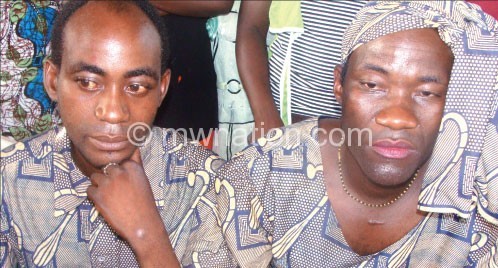Development
Facing sexual orientation realities

When her peers began to say she looked and behaved like a boy, Maria lost her self-esteem.
She recalls that these sentiments came when she was ten years old, but she felt there was nothing she could do about it.
“It disturbed me a lot and I felt there was something wrong with me. I didn’t have friends in school and when I failed my Standard Eight examinations, I decided to quit school,” says Maria, who is now a coach for a women’s football team.
Although she later got married, the relationship did not last.
She later found herself in prison after fighting with a woman at a drinking joint. She was there for a year and three months. While in prison, Maria says she was involved in a same sex relationship.
“At times some women would beg to sleep with me because they said I look like a man,” she said.
When Maria was released, she diverted her attention to sporting activities because she knows society is very judgemental towards people who engage in same sex relationships.
“I don’t have strong feelings for men. It is unfortunate that society treats people like me as outcasts,” she explains.
The 32-year-old says her community sidelines her in development activities because of her sexuality.
“I have not told anyone about my sexuality, not even my relations. But just by looking at me, people draw conclusions. They call me a Satanist and even tell their daughters to stay away from me,” she says.
This is supported by views expressed in a sexual minority column published in the Weekend Nation of May 11, 2013 titled Sex and Gender: Beyond the Binaries, which points out that when society is faced with such cases, it tends to victimise the affected individuals and forces them to conform to the already socially constructed roles.
“The society continues to live in the binary and denial that human sexuality is complex and that in human sexuality, you can have people who are gender non-conforming or gender variant whose gender expression does not conform in some way to society’s traditional binary role expectations,” reads the column in part.
It further explains that human sexuality is complicated and is not only what society has constructed it to be.
Maria says it is high time sexual minority groups began to be accepted as normal people.
“I’m a normal human being. I can contribute to the development of my community and there is no need to treat me like an outcast,” laments Maria.
A gynaecologist at Queen Elizabeth Central Hospital (QECH), Dr Ennet Chipungu, says being transgender is considered partly to be a psychiatric problem or just a personal choice, but there is no medical explanation for the condition..
“In my practice, I have only seen one transgender person who came because of an infection after she had female sexual organs created,” she says.
Chipungu, however, says transgenders such as Maria will have a normal male or female child as long as they are not using male hormones in pregnancy.
“They might have a female child with ambiguous genitalia if they take androgens during pregnancy. However sexual orientation is not determined by parent’s sexual orientation or whether they are transgender or not,” she explains.
A clinical psychologist at the College of Medicine, Associate Professor Chiwoza Bandawe says the behaviour of people who are not heterosexuals depends on the way society or families respond to their situation.
Again, Bandawe says most people focus on other aspects of their personality and ignore the psychological aspect.
“It is important for people to understand more about themselves, who they really are. There is also need to go for counselling and be engaged in a social network of people who are of the same calibre,” explains the clinical psychologist.
He adds that sharing how they feel and learning from experiences of people in the same situation plays a role in the emotional build up of a transgender individual.
Mangochi district health research coordinator, Enock Changamire says homophobia on issues of sexual minority groups is rife in Malawi and this is particularly perpetuated by the perception that their sexuality is making them rich.
“People have attributed it to western culture, but the fact that there is a local name ‘mathanyula’ means this practice has been there in the country,” he says, adding that prejudice and discrimination has made sexual minority groups to live a lie.
A traditional leader, who opted for anonymity, explains that same sex relationships started a long time ago when boys would sleep in ‘gowelo’ after undergoing initiation ceremonies.
“They used to have same sex relationships, but it was kept under wraps. Boys would even have same-sex intercourse when they went out to the bush to feed cattle,” says the traditional leader.
Programmes manager for Centre for the Development of People (Cedep), Rodney Chalera, says it is possible for one to be a transgender at the same time a bisexual as is the case with Maria.
“Sexual orientation is the feeling one has about who they are attracted to. A person can be a man and be attracted to fellow men or may be attracted to both males and females,” he says.
Chalera says at the moment it is hard to give statistics of sexual minority groups, however they constitute a small size of the population.
The Centre for Human Rights and Rehabilitation (CHRR) says it has been getting complaints of rights violations from sexual minority groups. CHRR programmes manager Michael Kaiyatsa says some landlords evict their tenants because of their sexual orientation.
“There is need for awareness. People need to realise that sexual minority groups have rights too,” he says.





